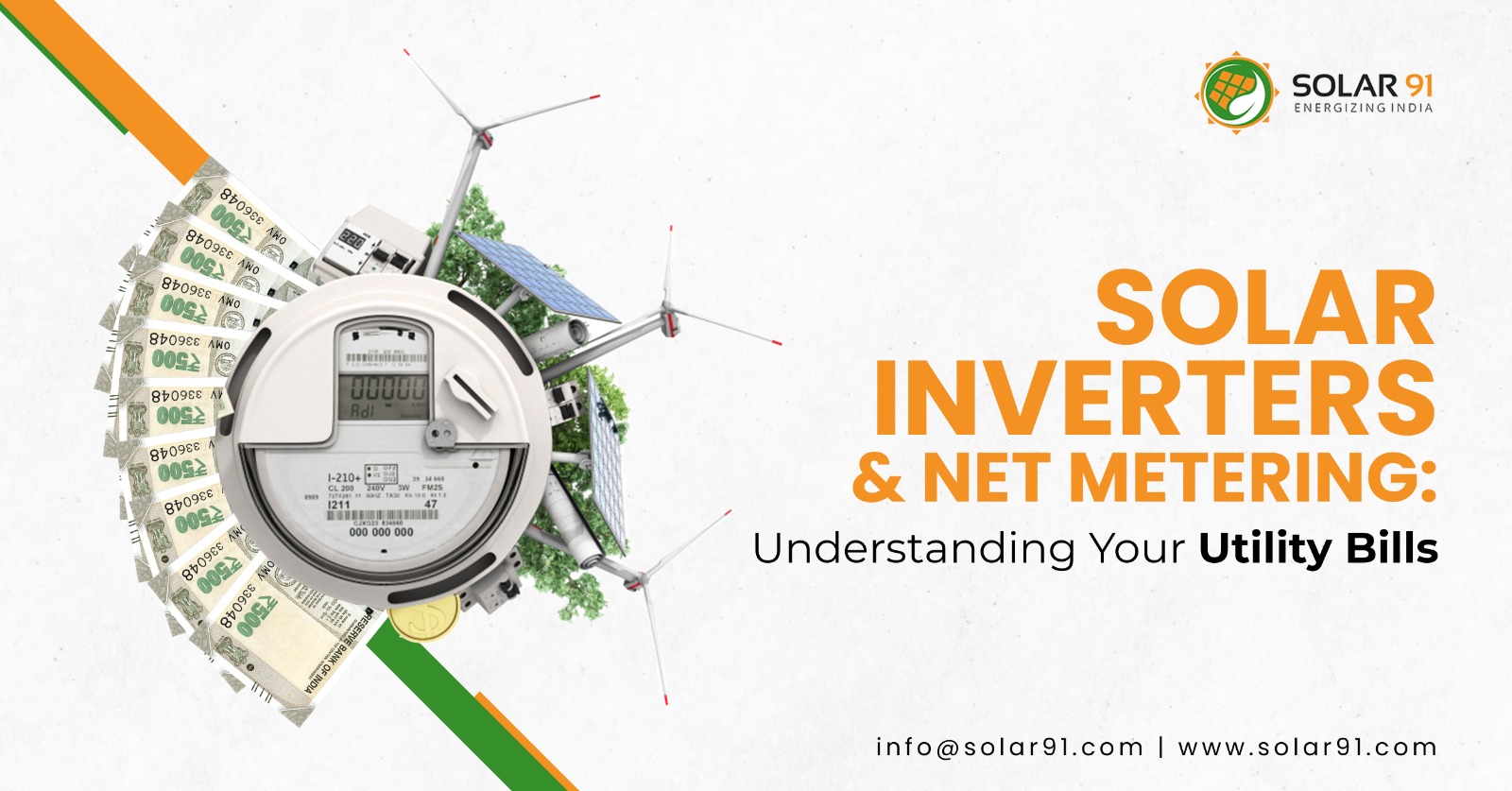Solar Inverters and Net Metering: Understanding Your Utility Bills
The invention of Solar Panels is a revolutionary change in the process of sustainable development. Solar energy is a renewable, affordable and inexhaustible source of energy. Hence, almost all of this renewable energy is not put to use. It is said that – Solar energy is so cheap that it can be wasted and we are doing the exact same thing. In retrospect, it is high time that we start utilizing solar energy which is available in abundance.
It is widely known that investing in solar energy is a significant one-time investment. It is proven that solar energy can reduce the consumption of electricity, and as a result – the electricity bill. Being the most abundant renewable source of energy, it can be seized and used in several ways.
What is a solar inverter?
Although solar energy is available in abundance, it still needs convertible equipment to put this energy to proper use. Hence comes the role of solar inverters. Solar inverters are the most essential element of a Solar panel system.
The energy received from the sun is stored in the batteries in the form of direct current (DC). This stored energy is then converted into electrical energy i.e. alternating current with the help of solar inverters. In other words, solar inverters convert the variable direct current into alternating current, so that it can be used as a power supply. All the appliances run on alternating current and therefore these inverters play a very prominent role in the utilization of solar energy.
For using solar energy as the main source of energy, solar panels are installed with solar inverters. Before installing solar panels at your home, it is necessary to pick a size for solar inverters. The size of the inverter is really important to consider before installation.
What is Net Metering?
Owners of solar energy systems receive credit for the electricity they supply to the grid through a billing system called net metering. If a residential customer has a PV system installed on their roof, for instance, it can produce more electricity than the facility requirements in a day. If the property is net-metered, the electricity meter will run backwards to give credit for any electricity used at night or during other times when the house uses more electricity than the system can produce. Only 20 to 40% of the production of a solar energy system is typically exported to the grid, where it is used to power loads for neighboring customers.
How Do Solar Inverters and Net Metering Impact Your Utility Bills?
The integration of solar inverters and net metering has a significant impact on utility bills for solar energy system owners. Here’s how these components influence the overall cost of electricity:
Reduced Energy Bills
By harnessing solar energy, commercial properties can significantly reduce their dependence on the grid, leading to lower electricity bills. Excess energy produced during peak sunlight hours can be fed back to the grid, earning credits that can offset the cost of electricity drawn during periods of low solar production.
Return on Investment (ROI)
The use of solar inverters and net metering enhances the ROI of solar panel installations. With net metering, the surplus energy generated during sunny periods can be used to offset future energy consumption, maximizing the financial benefits of the solar system over its lifespan.
Environmental Benefits
The integration of solar inverters and net metering contributes to a reduction in carbon footprint, promoting sustainable and eco-friendly energy practices. By utilizing clean energy, individuals and businesses can play a vital role in mitigating the adverse impacts of climate change.
Long-term Savings
While the initial investment in solar panel installations and associated equipment may seem significant, the long-term savings from reduced electricity bills and potential incentives make it a financially viable and sustainable option for many.
Monitoring and Maintenance
To ensure the optimal performance of solar inverters and maximize the benefits of net metering, regular monitoring and maintenance of the entire solar energy system are essential. Monitoring helps detect any potential issues with the inverters or the solar panels themselves, ensuring that the system operates at its maximum capacity. Routine maintenance, such as cleaning the panels and checking for any physical damage, is necessary to guarantee the longevity and efficiency of the system.
Conclusion
The combined use of solar inverters and net metering is a game-changer in the realm of sustainable energy solutions. By understanding these components and their impact on utility bills, individuals and businesses can make informed decisions about adopting solar energy, thereby contributing to a cleaner and more sustainable future.

